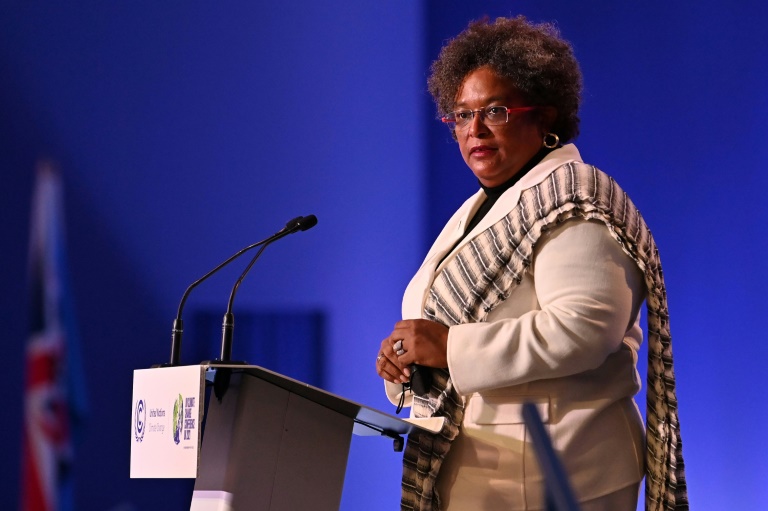Rich countries’ failure to cough up a promised $100 billion a year to help vulnerable nations cope with climate change has deadly consequences, the prime minister of Barbados said Monday at the COP26 summit in Glasgow.
Impacts from climate-enhanced droughts, heatwaves, floods and wildfires are “measured in lives and livelihoods in our communities and that, my friends, is immoral and unjust,” Mia Mottley told more than 120 world leaders kicking off the critical 13-day negotiations.
Dozens of small island states and major low-lying cities worldwide are also exposed to the existential threat of superstorms, made more destructive by rising seas.
Wealthy nations first made the $100 billion pledge in 2009, but fell $20 billion short ahead of their 2020 deadline.
Last week, in a revised schedule, they laid out a plan for hitting the target only in 2023.
Such delays, a paucity of funds devoted to adaptation needs, and the large share in the form of loans rather than grants have deepened an old rift between developing and rich nations struggling to find common ground.
“Are we really going to leave Scotland without the results and ambitions needed to save lives and our planet?,” Mottley asked, her voice laced with anger.
“How many more pictures of people must we see on these screens without being able to move? Are we so blinded and hardened that we can no longer appreciate the cries of humanity?”
Capping global warming at 1.5 degrees Celsius — the aspirational goal of the 2015 Paris Agreement — is an absolute necessity, she continued.
“For those who have eyes to see, for those who have ears to listen, and those who have a heart to feel, 1.5C is what we need to survive,” she said.
“2C is a death sentence for the people of Antigua and Barbuda, for the people of the Maldives, of Dominica and Fiji, of Kenya and Mozambique, and yes, for the people of Barbados.”
Even if newly revised carbon-cutting pledges submitted in the run-up to COP26 are fulfilled, it would still lead to “catastrophic” warming of 2.7C, according to a UN report last week.
“We’ve come here to say: ‘Try harder’,” she added. “Our people, the world, the planet need our action now — not next year, not in the next decade.”









